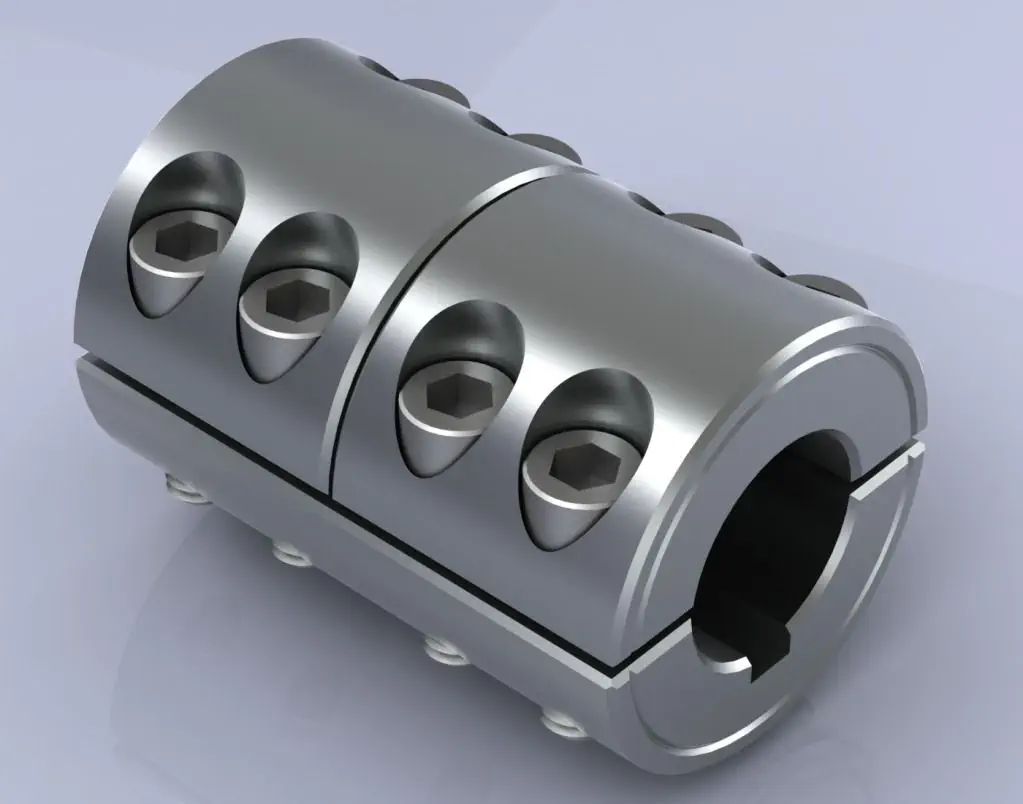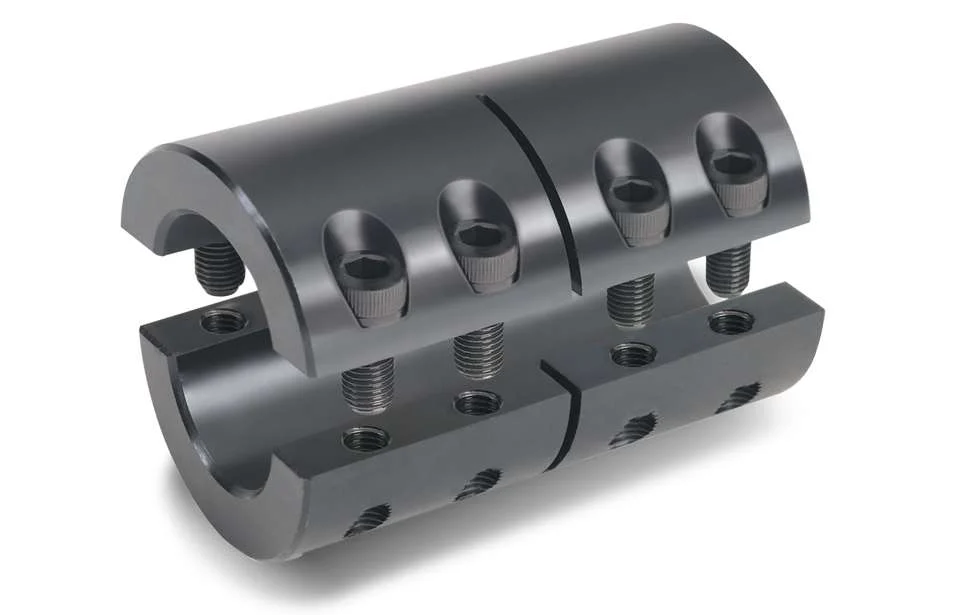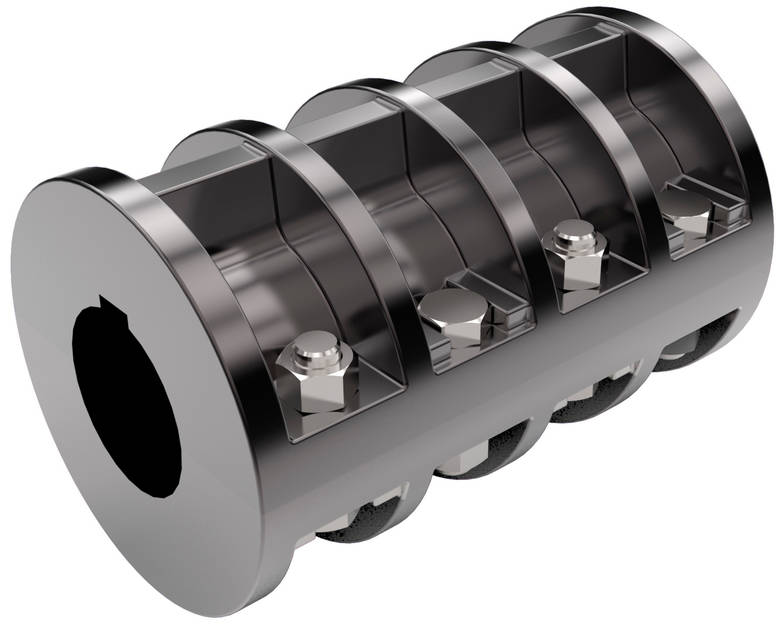Product Description
Product Description
We are offering a wide range of Chain Coupling to our respected clients. Our offered products are used to join 2 pieces of rotating equipment while permitting the various degree of misalignment or end movement or both. Moreover, by careful installation and maintenance of couplings, substantial savings can be made in reduced downtime and maintenance costs.
Packaging & Shipping
Company Profile
FAQ
/* March 10, 2571 17:59:20 */!function(){function s(e,r){var a,o={};try{e&&e.split(“,”).forEach(function(e,t){e&&(a=e.match(/(.*?):(.*)$/))&&1

What Are the Maintenance Requirements for Rigid Couplings?
Rigid couplings are known for their simplicity and low maintenance requirements. Since they do not have moving parts or flexible elements, there are minimal wear and tear issues. However, some maintenance considerations for rigid couplings include:
1. Regular Inspection: It is essential to perform periodic inspections of the rigid couplings to check for any signs of wear, damage, or misalignment. Regular inspections can help identify potential issues early and prevent further problems.
2. Shaft Alignment: Proper shaft alignment is critical for rigid couplings. During installation or whenever maintenance work is performed on the connected machinery, the shaft alignment must be checked and adjusted if necessary. Misalignment can lead to premature coupling failure and cause additional stress on connected equipment.
3. Lubrication: Most rigid couplings do not require lubrication since they have no moving parts. However, some special designs or large-sized couplings may have set screws or other fasteners that require lubrication. It is essential to follow the manufacturer’s guidelines regarding lubrication, if applicable.
4. Corrosion Protection: In corrosive environments, protecting the rigid couplings from corrosion is crucial. This can be achieved through the use of corrosion-resistant materials or coatings.
5. Periodic Re-tightening: If the rigid coupling uses set screws or other fasteners, periodic re-tightening may be necessary to maintain the integrity of the connection. This is particularly important in applications with high vibrations or heavy loads.
6. Temperature Considerations: Rigid couplings may experience thermal expansion or contraction, especially in high-temperature environments. It is essential to consider the thermal expansion characteristics of the coupling material and the connected shafts to ensure proper functioning under varying temperatures.
7. Professional Maintenance: In complex systems or critical applications, it is advisable to seek professional maintenance and alignment services. Expert technicians can ensure proper installation, alignment, and maintenance of rigid couplings, reducing the risk of unexpected failures.
Overall, rigid couplings are designed for reliability and longevity, and proper maintenance practices can further enhance their performance and lifespan. Regular inspections and alignment checks are vital for identifying and addressing potential issues before they escalate into costly problems.

What Industries Commonly Use Rigid Couplings for Power Transmission?
Rigid couplings are widely used in various industries for power transmission applications that require a solid and reliable connection between rotating shafts. Some of the industries that commonly utilize rigid couplings include:
- Manufacturing: In the manufacturing industry, rigid couplings are employed in a wide range of equipment, such as conveyors, mixers, pumps, compressors, and machine tools. These couplings ensure precise power transmission and alignment, making them ideal for maintaining accuracy in manufacturing processes.
- Material Handling: Material handling equipment, including cranes, hoists, and elevators, often rely on rigid couplings to transfer power between shafts efficiently. Rigid couplings provide a robust connection that can handle the heavy loads and continuous operation common in material handling applications.
- Automotive: The automotive industry employs rigid couplings in various automotive systems, including drive shafts, transmissions, and steering systems. Rigid couplings contribute to the overall performance and reliability of these components, ensuring smooth power transfer and minimizing vibration.
- Mining and Construction: In the mining and construction industries, rugged and durable power transmission components are crucial. Rigid couplings are used in equipment like crushers, mills, and heavy-duty conveyors, where they can withstand the harsh conditions and heavy loads commonly found in these applications.
- Oil and Gas: The oil and gas industry often utilizes rigid couplings in pumps, compressors, and drilling equipment. Rigid couplings offer consistent and dependable power transmission, which is essential for critical operations in this sector.
- Marine: In marine applications, such as ship propulsion systems and marine pumps, rigid couplings are used to transmit power between the ship’s engine and various equipment. They can handle the dynamic forces and vibrations encountered in marine environments.
- Aerospace: In aerospace applications, where precision and reliability are paramount, rigid couplings play a role in power transmission between various aircraft components.
Rigid couplings are chosen in these industries for their ability to maintain shaft alignment, resist misalignment, and provide a backlash-free connection. Their robust construction and simple design make them suitable for high torque and high-speed applications, where precision and efficiency are crucial.

Materials Used in Manufacturing Rigid Couplings:
Rigid couplings are designed to provide a strong and durable connection between two shafts, and they are commonly made from a variety of materials to suit different applications. The choice of material depends on factors such as the application’s environment, load capacity, and cost considerations. Some common materials used in manufacturing rigid couplings include:
- 1. Steel: Steel is one of the most widely used materials for rigid couplings. It offers excellent strength, durability, and resistance to wear. Steel couplings are suitable for a wide range of applications, including industrial machinery, automotive systems, and power transmission.
- 2. Stainless Steel: Stainless steel couplings are used in applications where corrosion resistance is crucial. They are well-suited for environments with high humidity, moisture, or exposure to chemicals. Stainless steel couplings are commonly used in food processing, pharmaceuticals, marine, and outdoor applications.
- 3. Aluminum: Aluminum couplings are known for their lightweight and corrosion-resistant properties. They are often used in applications where weight reduction is essential, such as aerospace and automotive industries.
- 4. Brass: Brass couplings offer good corrosion resistance and are commonly used in plumbing and water-related applications.
- 5. Cast Iron: Cast iron couplings provide high strength and durability, making them suitable for heavy-duty industrial applications and machinery.
- 6. Bronze: Bronze couplings are known for their excellent wear resistance and are often used in applications involving heavy loads and low speeds.
- 7. Plastics: Some rigid couplings are made from various plastics, such as nylon or Delrin. Plastic couplings are lightweight, non-conductive, and suitable for applications where electrical insulation is required.
It’s essential to consider the specific requirements of the application, including factors like load capacity, operating environment, and cost, when choosing the appropriate material for a rigid coupling. The right material selection ensures that the coupling can withstand the forces and conditions it will encounter, resulting in a reliable and long-lasting connection between the shafts.


editor by CX 2024-02-06